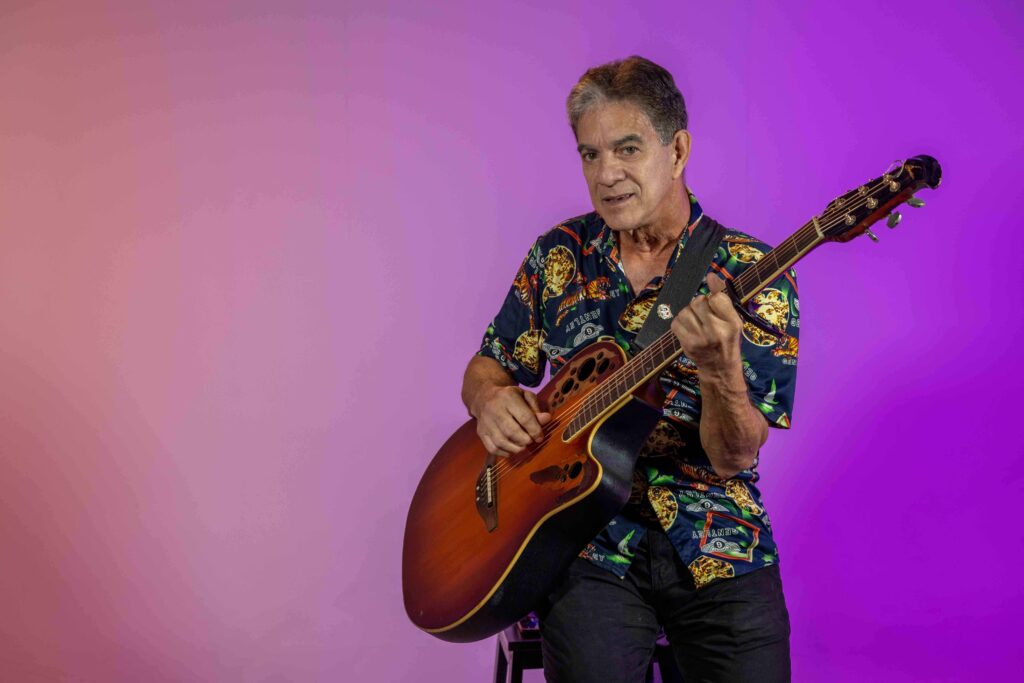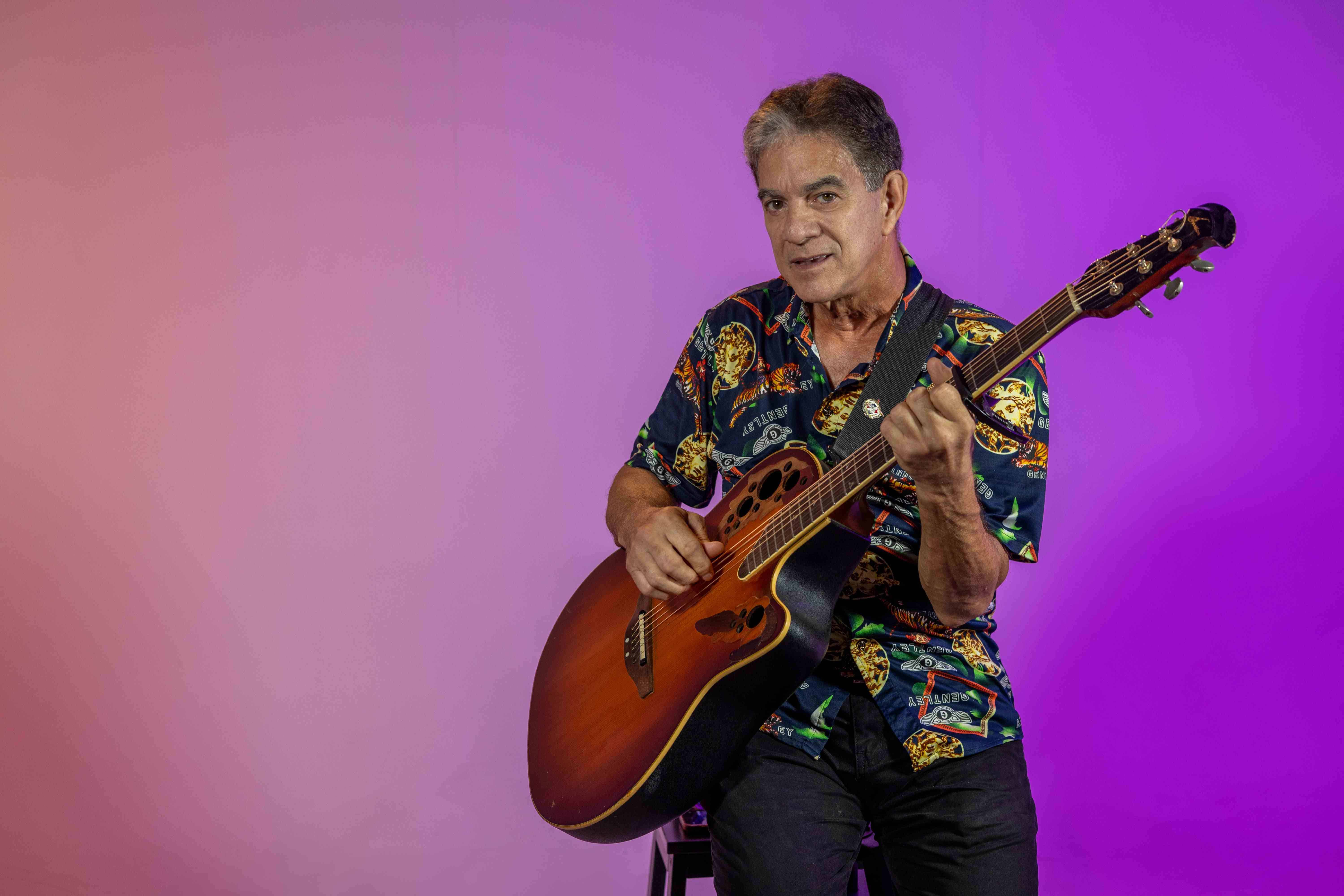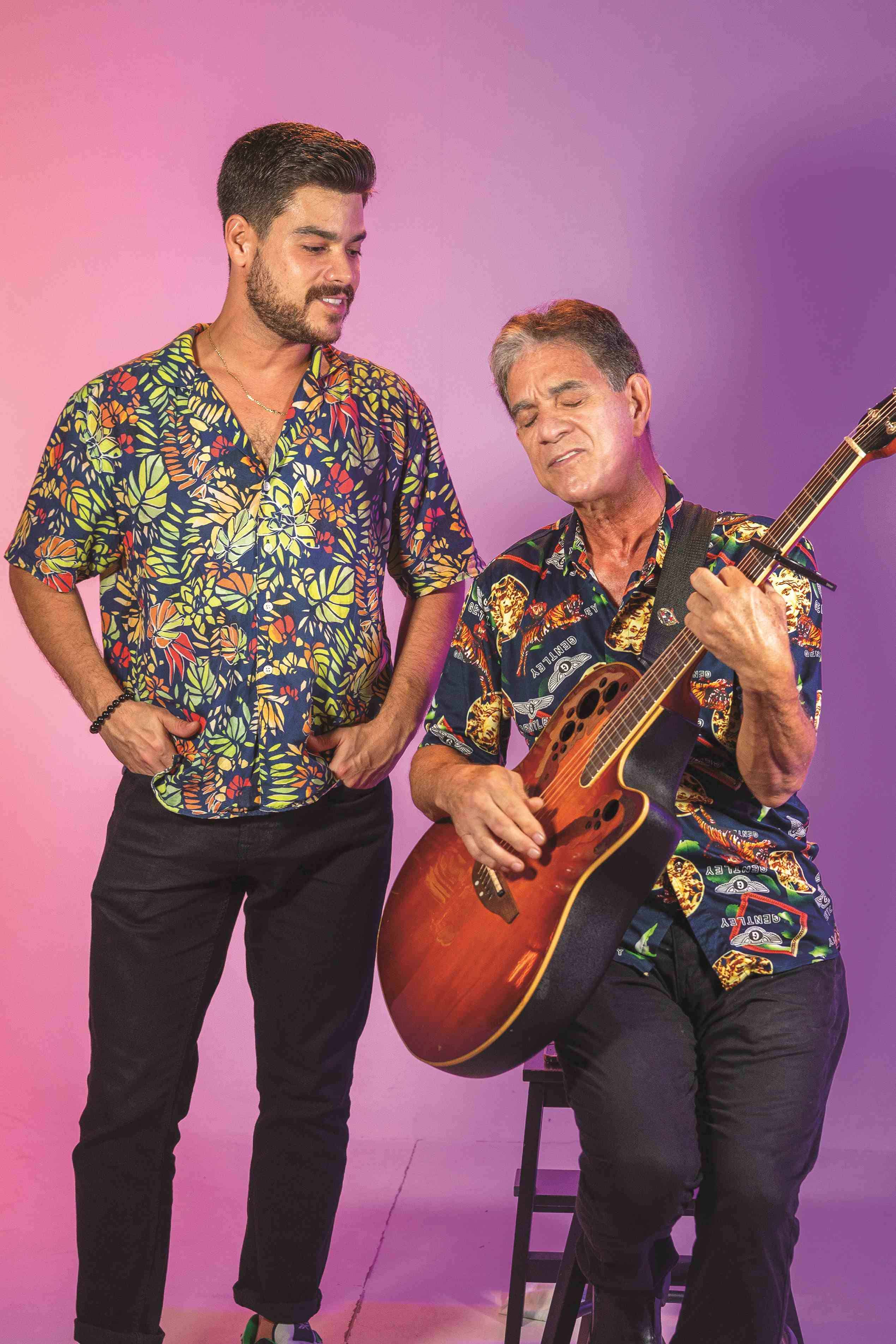
With a trace of 50 years in art, Claudio Cohenfaithful to the principles with which he debuted as singer-songwriterhas premiered “Tell me nice things“, his most recent creation, which will eventually form part of his next album.
The balladist and poet visited the editorial office of Free Diary with his son, the young singer-songwriter Gabriel Cohenwho has also shown credentials in art with great success.
Claudio Cohen, publicistcomposer and author of lyrics that celebrate love, life and social demands, has no great pretensions of holding a celebration loaded with paraphernalia to celebrate his 50 years in art.
—What do you remember about your beginnings in art?
Since I started composing I experienced a change after discovering Joan Manuel Serrat. We’re talking about 1972, when I heard Mediterranean. Before that, I made very simple little songs, and I thought: ‘If one day you feel that your soul is sad, you could look at everything differently.’ Over time, those traces fade, as my friend Francisco Gil told me.
I remember saying to him: ‘Francisco, how did you know what was in the song, if it’s new? I just finished writing it. That’s when I received my first art lesson. He explained to me that if you can anticipate what they are showing you, it is because it has already been done. That lesson made me avoid common places in my career, the paths traveled by others. introduced me to Joan Manuel Serrat and, upon listening Mediterraneanmy head was blown, both musically and literary. From there I began to write songs based on my experiences, always with a philosophical basis related to the search for human beings and their transcendence.

—How to avoid repeating oneself in a trajectory of 50 years and not fall into the commercial?
When I make a song that is similar to the previous one, that song neither moves me nor makes me cry. Every time I compose, every poem or every step I take, I have to be the first spectator. I am very critical of myself and I need what I do to impact me, because be it for its quality or for his creativity. That is the key that has allowed me to constantly renew myself and avoid repeating myself, both in music and in literature.
If you take my literature, which includes more than 200 songs and many other compositions, you will realize that there is no repeating theme. The approach I give to a romantic theme is different from the conventional or commercial approach, because everything I do is a product of my life experiences. Although I share experiences with many, I am also unique and unrepeatable.
—Claudio, if you could cite one or two songs that put you on the map, what would they be?
In principleFor when I die‘, a song that impacted Víctor Víctor so much that he invited me to be part of New Form along with Sonia Silvestre. Thanks to this I participated in ‘Siete Días con el Pueblo’, since I was impressed with the lyrics. In 1974 there were not many songs that dealt with topics such as philosophy, ecology or deep concepts; most were romantic songs. Another would be: ‘The rain was here and asked about you.’
—Could it be said that “Tell me nice things“is a preview of your next album?
It could be said that ‘Tell me nice things‘is the spearhead to show my new songs, which are many and have diverse themes. This one, in particular, is romanticbut from the perspective of a person who has lived and knows that the most special moment in life is probably when life is created, the moment of privacy. That’s when you should say nice things.
I have an agenda to do presentations in different towns and spaces, which have already invited me, to celebrate these 50 years. It also coincides with the participation in ‘Siete Días con el Pueblo’ in 1974, which this November celebrates those 50 yearswhich makes the presentation of my new song a way to update my repertoire while celebrating half a century of my career.
—How would you summarize these 50 years in music?
- They have been a constant search of the transcendencenot to get trapped in the juncture and think a little further. I feel like I came with something that I have never been able to see, but that I carry inside: a spirit which, I believe, is my father’s. Probably, my main purpose in life is to go with me spirit calm, in peace and elevated.

Claudio Cohen praised the talent of Gabriel, his son. Sing, act and dance. His charisma is enviable and his career is on the rise. “I would like people to get to know him because he is going to chart an artistic path not only in music, but also as a theater, musical and film actor. Gabriel has all the talents”
—Gabriel Cohen, how has your process been in art?
“Since I was born I had music close to me. At the age of five I had already composed my first song. My father always instilled in me an appreciation for art, music and especially singing. My voice has been my favorite instrument. Since I was little, I gave me many opportunities to develop and test it. Thanks to your support I have found my vocation and my own path.



